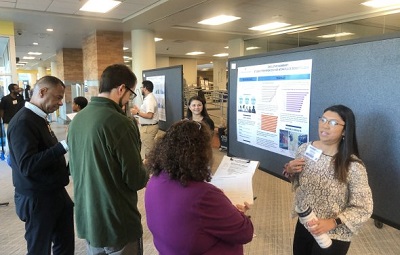Impacts of Beliefs and Personality on Ratings of Technology-Mediated Interviews When That Technology Malfunctions
Description/Abstract/Artist Statement
Videoconferencing technology is used frequently by organizations in the interview process because it offers increased convenience in comparison to face-to-face interviews; however, little research has examined the impact of malfunctions during such interviews. This study examined the effect of technology malfunctions on ratings of interviewees by experimentally assigning participants to view a recording of either a 24 pristine videoconference interview or a recording of the same videoconferencing interview with addition of technology malfunctions. Participants’ locus of control and prior beliefs about videoconferencing were hypothesized as moderators of the relationship between technology malfunction and ratings of the interviewee in the recorded interview.
Presentation Type
Event
Disciplines
Psychology
Location
Learning Commons @ Perry Library Conference Room 1311
Start Date
2-13-2016 11:30 AM
End Date
2-13-2016 12:30 PM
Upload File
wf_no
Impacts of Beliefs and Personality on Ratings of Technology-Mediated Interviews When That Technology Malfunctions
Learning Commons @ Perry Library Conference Room 1311
Videoconferencing technology is used frequently by organizations in the interview process because it offers increased convenience in comparison to face-to-face interviews; however, little research has examined the impact of malfunctions during such interviews. This study examined the effect of technology malfunctions on ratings of interviewees by experimentally assigning participants to view a recording of either a 24 pristine videoconference interview or a recording of the same videoconferencing interview with addition of technology malfunctions. Participants’ locus of control and prior beliefs about videoconferencing were hypothesized as moderators of the relationship between technology malfunction and ratings of the interviewee in the recorded interview.



Comments
Faculty Mentor: Dr. Richard N. Landers